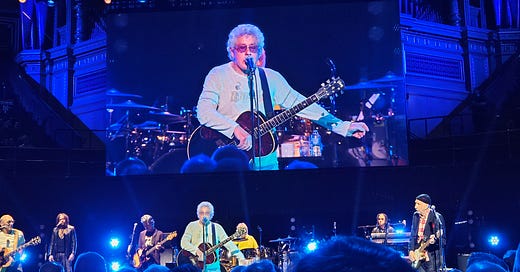There aren’t many constants in one’s life, and the only true one I had has now passed on. But I’ve been coupled to The Who for well over 50 years now, with only a three-four year period of estrangement (1979-82, obviously), and while I would no longer take a long plane journey or put myself out financially to see them in concert (and indeed, turned down…
© 2025 Tony Fletcher
Substack is the home for great culture




